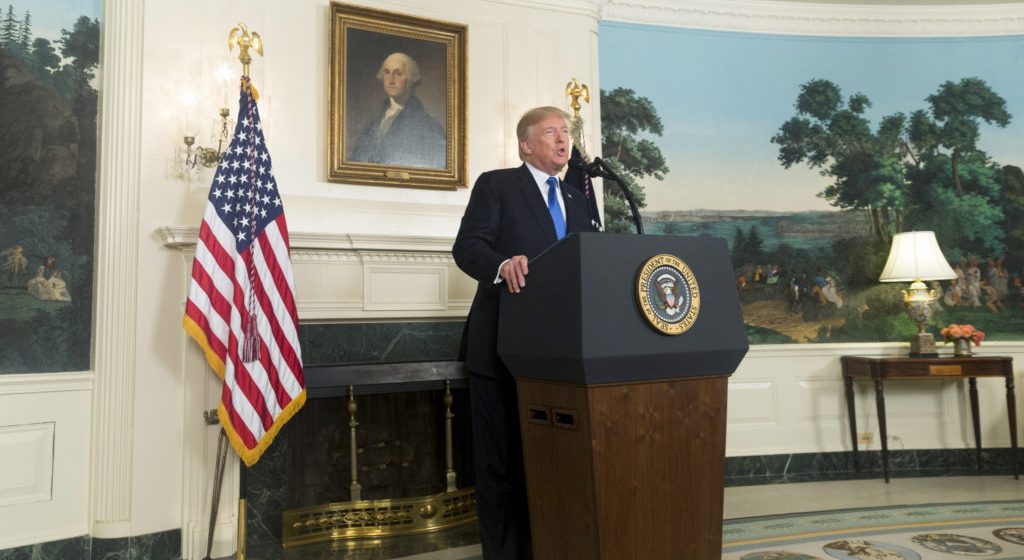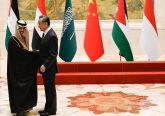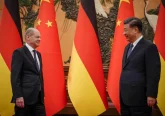Three years ago, US-Iranian relations could not have been better. Once declared part of the ‘Axis of Evil’ by then-president George W. Bush, the Iran Nuclear Deal signed by his successor Barack Obama heralded a new age of more constructive ties with Tehran and the promise of greater nuclear security. While critics raised concerns that Iran would renege on the deal, these fears had proven unfounded so far – the IAEA confirmed that Iran has complied with its obligations under the agreement.
Nonetheless, the Trump administration withdrew the US from the nuclear deal. Additionally, Trump has re-imposed all sanctions removed in 2015. With trust between Washington and Tehran in tatters and US carrier groups deployed to the Persian Gulf, the US and Iran are once more headed on a collision course.
Trump’s hawkishness towards Iran is in stark contrast to his more accommodating attitude towards North Korea, another member of the erstwhile ‘Axis of Evil’. Despite having threatened ‘fire and fury’ and ramping up US military presence in the region, Trump eventually opted to engage in direct negotiations with Pyongyang. Trump’s historic meetings with North Korean leader Kim Jong Un in Singapore and Hanoi appeared to signal a desire for improved relations with the intended goal of denuclearisation of the Korean peninsula.
Such contradictory behaviour betrays an incoherent nuclear policy. If Trump’s rationale for withdrawing from the Iran nuclear deal were indeed suspicions of Tehran’s true intentions, Washington should not have pursued rapprochement with North Korea, since the reclusive Kim regime is arguably no less trustworthy or friendly to Washington than Tehran. Even if the US had wished to avoid a ‘conflict on two fronts’ against both Iran and North Korea at the same time, Tehran would have proven far more reliable, as it was already complying with the nuclear deal agreed with Washington vis-à-vis Pyongyang, whose true intentions remain unclear.
There seems to be no overarching goal of achieving denuclearisation. Rather, Trump seems to have been influenced by key allies in Israel and Saudi Arabia – both of whom deeply distrust Tehran. Additionally, taking a tougher stance allowed Trump to solidify his Republican base, which fears that the US government has ‘gone soft’ on Iran, and strongly opposed Obama’s diplomacy. Lastly, Trump seems intent on dismantling any and all policy achievements of his predecessor, whether domestic or international, without necessarily having alternatives in place.
The effect of withdrawing from the Iran nuclear deal, is that the US now finds itself in an untenable situation: allowing Iran to acquire nuclear capabilities is not an option, at the same time, there seems little appetite for large-scale military intervention. The nuclear deal provided an elegant way out of this double bind. Setting back Iran’s nuclear programme by ten years, the deal would have guaranteed the US not only one less nuclear-armed adversary to contend with, but also set the stage for trust-building and deeper engagement between Washington and Tehran.
Without the deal, Iran not only has less reason to restrain its nuclear ambitions, but, arguably, rather aggressive US behaviour makes it more urgent for Tehran to pursue a bomb. Furthermore, American credibility has been compromised by this withdrawal; Tehran will no longer be so willing to trust US overtures towards peace and cooperation, suspecting that they would be ‘double-crossed’ once again. Washington may soon have to deal with an additional nuclear-armed adversary that will likely take an increasingly uncompromising attitude towards the US.
On the other hand, Trump’s flirtation with Pyongyang has yielded little concrete results thus far. Despite indicating their commitment to denuclearisation at the Singapore Summit, North Korea has continued to ‘produce nuclear material and weapons, and…expand its missile program.’ And, further negotiations have broken down: the Hanoi Summit was cut short by both leaders while Pyongyang has expressed dissatisfaction with US Secretary of State Mike Pompeo’s conduct of the nuclear talks and have demanded a ‘more careful and mature’ interlocutor in his place.
In sum, both in the short and medium-term the US finds itself in a weaker position than before Trump’s nuclear gambit. First, Trump’s inconsistency has further weakened American credibility abroad with friends and foes alike. Second, the Trump administration’s abrasive and inconsistent diplomacy has hardened Tehran and Pyongyang’s attitude towards Washington. Worst of all, the US might have to deal with two potentially nuclear-armed adversaries instead of one in the future.
Finally, Trump’s nuclear gambit will make it more difficult for future efforts to rain in nuclear proliferation. Even if Trump fails to secure re-election in 2020, future administrations will have their work cut out trying to grapple with the fallout of Trump’s foreign policy missteps and undermining of trust in its stated commitments. For now, we can only hope that cooler heads prevail in the White House to prevent tensions from escalating into open conflict between Washington and its nuclear adversaries.







